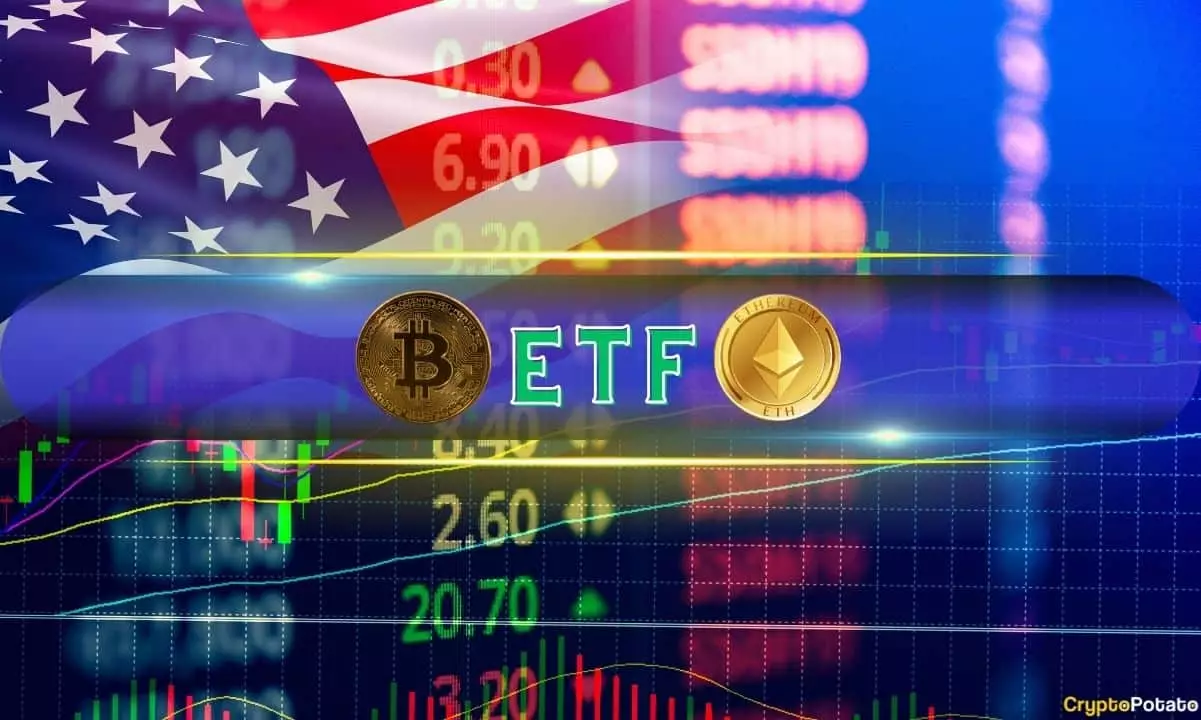The landscape of financial investments is undergoing a paradigm shift, notably highlighted by the remarkable performance of cryptocurrency-related exchange-traded funds (ETFs). As we progress through 2024, these funds have come to dominate investment discussions, accounting for nearly 40% of the top 50 best-performing ETFs launched this year. Such a pronounced presence not only underscores the burgeoning interest in digital currencies but also marks a significant milestone in the acceptance of cryptocurrencies within mainstream financial markets.
Data from ETF specialist Nate Geraci reveals that out of 610 funds launched in 2024, a striking 19 are explicitly linked to cryptocurrencies like Bitcoin (BTC) and Ethereum (ETH), or are associated with firms boasting substantial crypto holdings, such as MicroStrategy. This influx of crypto-focused ETFs, especially among the top-tier products, suggests a shift in investor perception—one where digital assets are no longer viewed as fringe investments but as viable components of a diversified portfolio.
The allure of cryptocurrencies, combined with the relative ease of investing through ETFs, offers a compelling entry point for both novice and seasoned investors. By facilitating easier access to these digital assets, ETF structures provide a layer of regulatory oversight and transparency that aligns more closely with traditional investment vehicles.
Among the leading cryptocurrency ETFs, BlackRock’s iShares Bitcoin Trust (IBIT) stands out with an astonishing $24.7 billion in year-to-date inflows. This incredible figure positions IBIT as a flagship product, reflecting robust demand and investor confidence. Following close behind is Fidelity’s Wise Origin Bitcoin Fund (FBTC), with $10.75 billion in inflows, attesting to a fierce competitive atmosphere among asset management giants seeking to capitalize on the crypto market’s potential.
Interestingly, the performance of these ETFs is not confined solely to Bitcoin. The Ethereum market has also begun to capture the investor spotlight, with the iShares Ethereum Trust (ETHA) crossing the threshold of $1.4 billion in deposits since its launch. This trend illustrates that the diversification of crypto investments is gaining momentum, making the market increasingly attractive to a broader audience.
MicroStrategy, the foremost corporate holder of Bitcoin, with over 279,000 BTC valued at approximately $24 billion, plays a pivotal role in shaping the cryptocurrency ETF market. Various ETFs linked to MicroStrategy, such as the YieldMax MSTR Option Income Strategy, have collectively garnered significant inflows, further highlighting the intersection of traditional corporate finance and cryptocurrency investment.
The correlation between recognized entities like MicroStrategy and the rising popularity of related ETFs helps to mitigate risks in a market often criticized for volatility. This linkage reassures investors who might otherwise hesitate to enter the crypto space, cloaked in uncertainty and complexity.
While major players like BlackRock and Fidelity dominate the conversation, smaller ETFs are also making their mark. Funds like the VanEck Bitcoin ETF (HODL) and ProShares Ultra Bitcoin ETF (BITU) have reported impressive inflows, collectively amassing hundreds of millions in investment. This trend indicates a healthy, evolving market that welcomes both established financial giants and new entrants.
As the crypto landscape continues to expand, these smaller ETFs will likely play a crucial role in diversifying options available to investors, catering to various risk appetites and investment strategies.
The rapid rise of cryptocurrency ETFs signals a transformative era in investment solutions. As these products secure growing market share against traditional investments, they may redefine the perception of digital assets and their place within mainstream finance. The positive inflow trends, backed by institutional confidence and burgeoning investor interest, imply that cryptocurrency ETFs are far from a passing trend. Instead, they represent a crucial evolution in investment strategies, paving the way for a more inclusive financial landscape, where digital assets are poised to play a significant role in portfolio construction. As this market continues to mature, it will undoubtedly inspire further innovation and adaptation among financial institutions and investors alike.


Leave a Reply